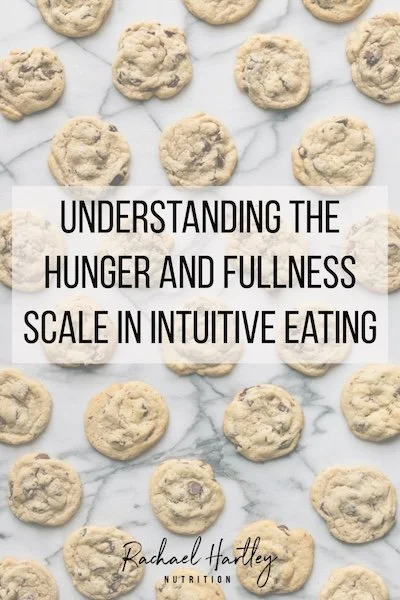f you're familiar with Intuitive Eating, then you know about the hunger and fullness scale, a tool to help you get back in touch with your hunger and fullness cues. This blog post answers some of the common questions and challenges I hear from clients in my practice when trying to apply the hunger fullness scale to their eating.
Read MoreBecause dieting is so normalized in our culture, sometimes it can be hard to know if your struggles with food are enough to need treatment for disordered eating or an eating disorder. This blog post shares 5 signs that you are sick enough for treatment.
Read MoreEating disorders are one of the most misunderstood mental illnesses, and that lack of knowledge prevents many people from getting the care they need and deserve. For Eating Disorder Awareness Week, I’m busting four of the most common eating disorder myths that get in the way of people needing help.
Read More“You can’t practice intuitive eating in eating disorder recovery” is a common refrain in treatment. But is that actually true? In this post, I discuss the 10 principles of intuitive eating and how they can be incorporated in eating disorder recovery.
Read MoreTrapped in a pattern of restricting and binging? The dieting pendulum analogy will help you understand the restrict-binge cycle, and give you tools for how to break free.
Read MoreAre you obsessed with healthy eating? How do you know whether you’re health conscious, or whether your eating is disordered. This post discusses what is orthorexia, and includes an orthorexia quiz to help you understand if your interest in nutrition could be harming your health.
Read MoreThere are so many misconceptions about eating disorders, within dietetics, and in the general population, and that’s created a world that’s really dangerous for those with eating disorders or at risk. It prevents people both from asking for help when they need it, and receiving adequate care when they do.
Read MoreWhen your brain is on diet culture, there’s pretty much only room for thoughts about food, exercise and body bashing. When you find freedom from dieting, there’s so much more headspace for things that matter.
Read MoreWith the rise of wellness culture, the line has gotten blurry between dieting and just living a healthy lifestyle. When diet companies use the language of body positivity and wellness, it makes it difficult to spot a diet in disguise. Ask yourself these eight questions to see if you're lowkey dieting, and what you can do to ditch the diet mentality once and for all.
Read MoreThe final installment of this series on PCOS and Intuitive Eating will take a deeper look at why intuitive eating should be the backbone of treatment for PCOS, and why there is a higher risk of disordered eating in women who are diagnosed with PCOS.
Read MoreAre you a dietitian interested in bringing non-diet approaches to your practice? Here's 10 tips for how to become an intuitive eating dietitian.
Read More











